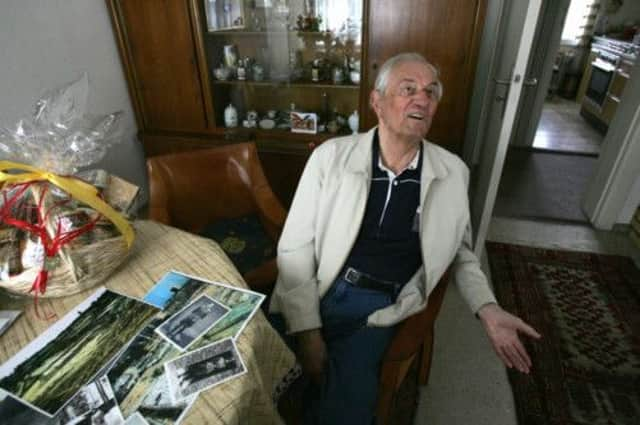Rochus Misch, last inmate of Hitler’s bunker, dies


Misch died in Berlin after a short illness, according to Burkhard Nachtigall, who helped him write his 2008 memoir.
Misch, who was the Fuhrer’s devoted bodyguard, remained proud to the end about his years with Hitler, whom he affectionately called “boss”.
Advertisement
Hide AdAdvertisement
Hide AdIn a 2005 interview, he recalled Hitler as “a very normal man” and gave a riveting account of the German dictator’s last days before he and his wife Eva Braun killed themselves as the Soviet Red Army closed in around their bunker in Berlin.
“He was no brute. He was no monster. He was no superman,” Misch said.
Born in the small Silesian town of Alt Schalkowitz, now part of Poland, Misch was orphaned at an early age. At 20, he decided to join the SS – an organisation he saw as a counterweight to a rising threat from the left. He signed up for the Leibstandarte SS Adolf Hitler, a unit founded to serve as Hitler’s personal protection.
“It was anti-communist, against Stalin – to protect Europe,” Misch said. “I signed up in the war against Bolshevism, not for Adolf Hitler.”
When Nazi Germany invaded Poland, Misch found himself in the vanguard as his SS division was attached to a regular army unit for the blitzkrieg attack.
Misch was shot and nearly killed while trying to negotiate the surrender of a fortress near Warsaw, and he was sent to Germany to recover.
There, he was chosen in May 1940 as one of two SS men who would serve as Hitler’s bodyguards and general assistants, doing everything from answering the telephones to greeting dignitaries.
Misch and comrade Johannes Hentschel accompanied Hitler almost everywhere he went – including his Alpine retreat in Berchtesgaden and his forward “Wolf’s Lair” headquarters.
Advertisement
Hide AdAdvertisement
Hide AdHe lived between the Fuhrer’s apartments in the New Reich Chancellery and the home in a working-class Berlin neighbourhood that he kept until his death.
“He was a wonderful boss,” Misch said. “I lived with him for five years. We were the closest people who worked with him…we were always there. Hitler was never without us day and night.”
In the last days of Hitler’s life, Misch followed him to live underground, protected by the so-called Fuhrerbunker’s heavily reinforced concrete ceilings and walls.
“Hentschel ran the lights, air and water and I did the telephones – there was nobody else,” he said.
“When someone would come downstairs we couldn’t even offer them a place to sit. It was far too small.”
He recalled that on 22 April, two days before two Soviet armies completed their encirclement of the city, Hitler said: “That’s it. The war is lost. Everybody can go.”
“Everyone except those who still had jobs to do like us – we had to stay,” Misch said.